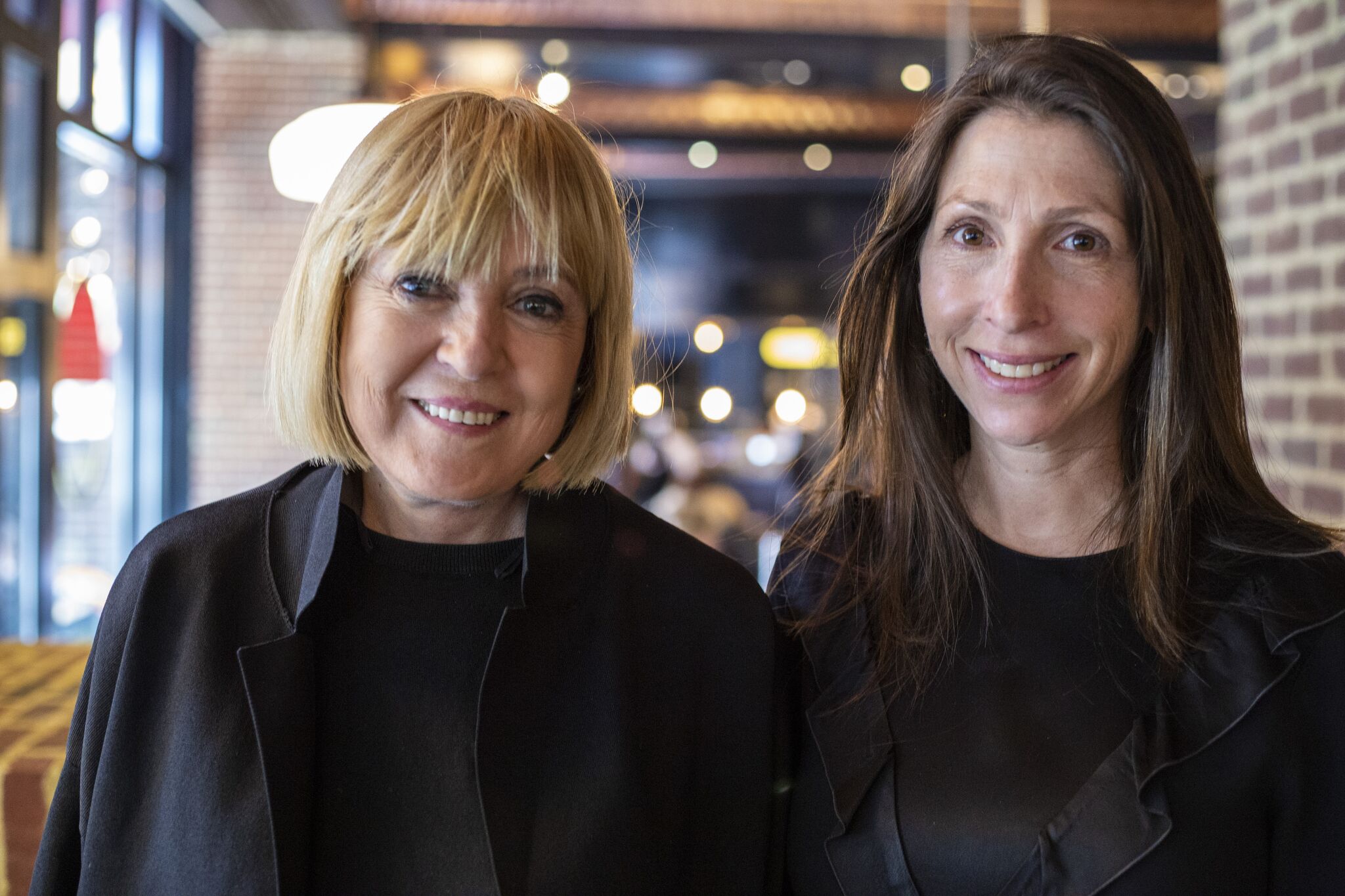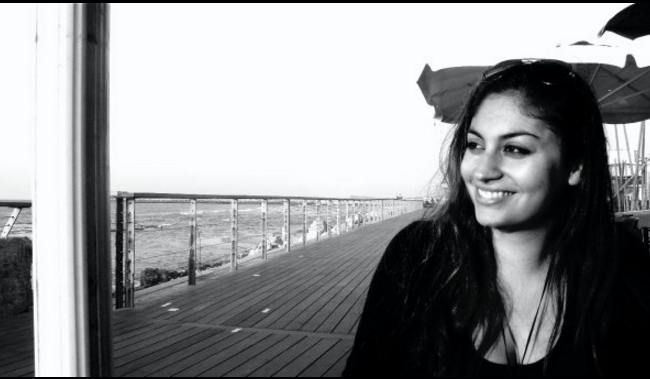A Conversation with Hilla Medalia and Shosh Shlam (LEFTOVER WOMEN)

I met with Israeli directors Hilla Medalia and Shosh Shlam (Web Junkie) on Sunday, April 28, 2019, at the 2019 Tribeca Film Festival, to discuss their new collaboration on the documentary Leftover Women (which I also reviewed). In it, they follow three women in China – Xu Min, Hua Mei and Gai Qi – who, at 28, 34 and 36, are considered old maids, or “leftover women,” as they are known in their homeland. The movie is emotionally raw and deeply fascinating in its exploration of the socio-cultural details of a country that insists that all women should marry and multiply, especially now that the one-child policy is no longer in place. Here is a condensed digest of our conversation, edited for length and clarity, and to make the language flow in a more idiomatic American English.
Hammer to Nail: How did you two first meet and then decide to start collaborating?
Shosh Shlam: We met in 2012 …
Hilla Medalia: No, before that, Shosh. We met in 2006, when we were both editing our films. I was doing my first film, To Die in Jerusalem, and Shosh was working on…
SS: Be Fruitful and Multiply.
HM: Be Fruitful and Multiply, yeah. And we met in the editing room and we became very close friends, and for years we said, “One day we’ll work together.” And then one day we did Web Junkie.
SS: It’s interesting because, you know, I wasn’t brought up on the internet. Hilla was. And I’m concerned about technology. It’s not natural for me. I see many things in human relationships that have been ruined, so…
HM: In my mind, they were only improved. (laughs)
SS: So one day, I saw on Australian television that there are camps in China where children are forced by their parents to go into treatment to try to cure them from this addiction. So, I thought in my mind, if I want to really touch this, I should go to China. So I asked Hilla, “What do you think?” And she said, “OK.” So I said, “But you are taking a risk because maybe I’ll put you in that camp, as well.” (laughs)
HM: Yeah, so we did Web Junkie together and then when it premiered at Sundance, Shosh told me, “Let’s go back to China,” and I was like, “OK, great.” And then there was a big incident where a few activists were handing out stickers in buses and subway in China against sexual harassment, that was when the “Me Too” movement started to burst internationally. And they were arrested and then we thought that we should, in fact, start researching women’s rights in China and that’s how we came to hear about the “leftover women” phenomenon, which none of us knew about it, before.
HtN: Right, so that explains your main topic. How did you then start choosing actual people to film?
SS: So we advertised on Weibo – it’s the Chinese Twitter – asking women to come, saying we are doing a documentary about this and we would like to meet. So many, many women came, but not all of them were willing to be filmed. They wanted to share their pressure, and I said, “But we are doing a documentary. We are not psychologists. I mean, we are willing to hear you, but we have our goal to make a documentary and shoot your journey.” So after a while, after seeing many, many women, we chose these three that were interesting. Hua Mei, the protagonist, we were not sure about her in the beginning, she was not very active in the discussion. And she said, “Why don’t you take me? I think I have an interesting story; I come from the village.” So then we thought that the gap, coming from the village and being a lawyer in Beijing, can be really interesting to follow, and she was right.
HM: And she was the first one we actually followed.
HtN: Were there other women that you originally thought you were going to include, or maybe even filmed their stories and then cut them out in the editing?
SS: Yes.
HM: So first of all, there were many women who came and didn’t actually want to be filmed. They came, they wanted to talk, but they didn’t pursue, or their family didn’t pursue.
SS: A very important issue to mention is that if the woman agreed, sometimes the parents didn’t agree, because it’s a big shame and considered a failure if your daughter is not married, because the pressure from the government and from tradition are so big that the parents couldn’t cope with us. So there were about two that we began with, and liked, and then decided that we couldn’t continue with them.

Shosh Shlam, our Chris Reed and Hilla Medalia
HtN: Speaking of pressure, either on the women, or pressure from the families or from the government, did you as filmmakers, exposing this aspect of Chinese society, ever feel any pressure from government forces to not tell the story? Did you feel you were being watched, or were you basically free to do what you wanted to do?
HM: Well, we never asked for government permission, not for Web Junkie nor for this film, and because of that, we needed to work with only a local crew. I mean, we think it’s a good thing to work with the Chinese who speak the language and understand the culture, especially because we are coming from a different culture. So, we had a fixer and people that really guided us on those points. But also, if we put that aside, if Westerners are coming and shooting right away, it raises a lot of attention. When we. as Westerners, would stand next to the crew and there were police, we would go away.
SS: You can not bring outsiders to work. I’m not just talking about language; I’m talking about even the photographer. You need a permit visa, and if you need a permit working visa, they will not give it to you, and they will begin to ask you questions that you want to avoid. And because of the language, you cannot bring somebody who doesn’t speak Chinese.
HtN: The very first time I saw protagonist Hua Mei on screen, I thought that she looked very French, the way she dressed, the way she had her hair … that was my very first thought, maybe because I am half-French, who knows? So when she went to France I was like, “That is perfect.” How is she doing now? How long has she been there, and have you followed up on how she is doing?
HM: She finished her Master’s in Strasbourg and then she got an offer from this professor to work in Munich, so she’s actually now living in Munich and working on building her own company.
HtN: Did she speak French at all before going there?
HM: She studied French in Beijing. She got to a point where she can have a very simple conversation and the studies were in English, so she didn’t have a problem.
HtN: Speaking of filming Hua Mei, there are some really raw emotional scenes, and not just with her because Xu Min has a raw scene with her mother, too. How did you negotiate that kind of access to film them in moments like that? Because they’d said OK to film them, but those scenes are so powerful. How did you make that happen to be allowed to be there?
SS: So Hua Mei invited us to come to the village. She asked her parents if it’s OK. And as villagers, they really don’t know what it means to film, they don’t understand it. So …
HM: I think not just villagers. Don’t you think in general, a lot of time when you film someone, they don’t understand what it means?
SS: So we came and in this particular first session in the village we decided really not to interfere and let it go in the direction of a real meeting between her and them that as we understood later, every time she comes – twice a year – every time it looks like this. The pressure on her and the guilt that they put on her are enormous. But then after a while, the sister got very mad. After their conversation and their argument she said, “What are they doing here? Why did you bring them? Why… I mean, how now, how they will look at us?” You know, the shame is very, very strong there. You know, I mean, you don’t wash dirty clothes in front of strangers. And we are not Chinese, so it was …
HM: Even worse.
SS: …even worse. So she said, “OK, you stop shooting now, you have to go.” So we said, “What do you mean we have to go?” And in China, you don’t argue. If they tell you go, the photographer said, “We have to go.” Very disappointed, we had to leave, hoping that the next day would be better. The next day we came again, and the sister was not there, so we had a chance to do something with Hua Mei and the parents. But, you know, the access not only to Hua Mei, but to the others, too, comes from our doing long research and creating trust. And when you create trust, the door opens.
HM: Yeah.
SS: So this is how we work.
HM: So yeah, it’s the trust and also this relationship that you develop with them. So you are there with them at sometimes very difficult moments, and they allow you to stay because you become part of their life, and I think that’s true in all our films.
HtN: How is poor Xu Min doing, because the last time we see her she is the most forlorn, right? Hua Mei is going off on an adventure, Gai Qi has just had her child and is happy in marriage, though bored, but how is Xu Min doing now? Have you stayed in touch?
SS: Still looking. Still, the mother says no. You know, every candidate that she brings, she is having a very tough time trying.
HM: Hopefully it will be solved soon, but not yet.
HtN: Well I find your film really remarkable in its investigation of something I’d never even considered. And really, again, your access to your subjects is amazing, and I wish you all good things for the film. Congratulations on making it.
HM: I just want to say one last thing, which is that I feel that though obviously we’ve put a light on these educated Chinese women to share their story, I feel there is something to learn from their story also in the West. I think that often in our societies, and all over the world – maybe not as exaggerated and maybe not coming from the government which is what’s very unique in this story – it is not that different. It’s like I’ve been mentioning this whole week that I have two little kids and I come here, and everybody is like, “Oh my gosh, you’re going to New York, to Tribeca, and then to Hot Docs in Toronto and you’re leaving your kids alone. How is your husband going to manage?” But you know, a week ago my husband went away for work and nobody was asking me or him how I am managing. So I think there is a lot for us that we can learn from these women about our own lives, as well.
HtN: Sure, Chinese society is not unique in the disparities in how it views women’s roles and men’s roles and I agree that we can definitely learn a lot from that.
SS: Yeah, but in China still, I mean the whole phenomenon is how women will please men and you know the Chinese government has demographic problems with 13 million more men than women, so the victims are women.
HM: Right.
SS: And this is the important thing, not only about a traditional society, but a government that takes these young women as a tool to solve their problems. And this is scary.
HtN: Well, again, thank you for making the film.
HM/SS: Thank you.
– Christopher Llewellyn Reed (@ChrisReedFilm)











